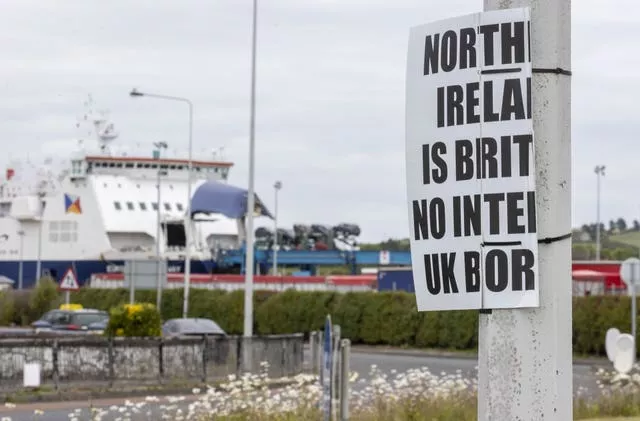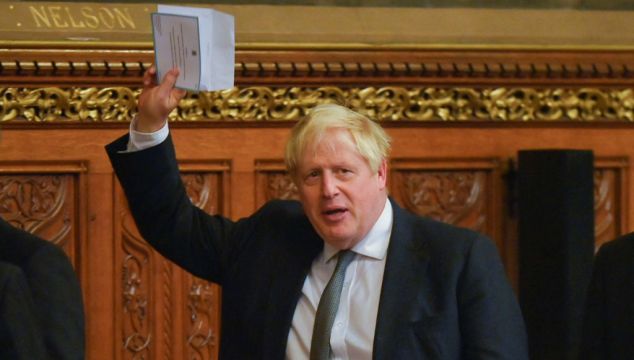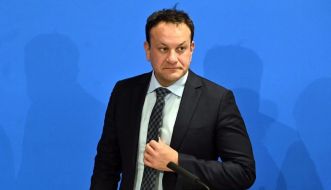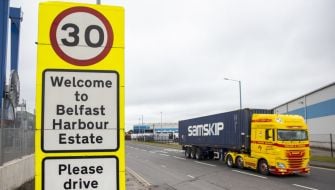British prime minister Rishi Sunak’s efforts to break the impasse over the Northern Ireland Protocol have been dealt a blow by Boris Johnson.
The former prime minister warned that dropping the Northern Ireland Protocol Bill – which would empower the UK to unilaterally scrap parts of the treaty – would be a “great mistake”.
Mr Johnson’s first intervention on Brexit since departing No 10 comes as Mr Sunak has engaged in frantic diplomacy to secure a UK-EU agreement on fixing issues with the contentious post-Brexit trading arrangements.
After further talks with EU leaders on Saturday, Mr Sunak stressed that a deal is “by no means done”, amid speculation one could be unveiled early next week.
The British government has indicated that a successful outcome would mean the Protocol Bill would no longer be required.
A senior government source said: “If we can find a way to satisfactorily resolve the issues with the protocol then you wouldn’t need the Bill. But we haven’t resolved them yet.”
Mr Johnson negotiated the protocol, which created economic barriers on trade being shipped from Britain to Northern Ireland, as part of his Brexit deal, but later turned against it.
Soured relations between London and Brussels deteriorated further when his government tabled the controversial Protocol Bill at Westminster.

The legislation is seen by Brexiteers as a key bargaining chip with the EU.
When Mr Sunak entered office, he paused progress of the Bill as officials resumed intensive talks aimed at reaching a negotiated settlement.
A source close to Mr Johnson said: “His general thinking is that it would be a great mistake to drop the Northern Ireland Protocol Bill.”
His intervention will raise concerns over a potential Tory rebellion if Mr Sunak’s changes are put to a vote in the UK parliament.
Eurosceptic backbenchers will be angered by any compromise with the EU, particularly over the oversight role of the European Court of Justice (ECJ) in Northern Ireland.
The court is likely to retain the final say on single market issues as this is a red line for the bloc, fuelling sovereignty concerns among Tory hardliners and unionists in the North.
Sir James Duddridge, a former Brexit minister, told The Telegraph a deal including a role for the ECJ would be a “wedge” to a real Brexit.
“The PM would be unwise to put his own neck on the chopping block,” he said, adding that “a large number of Brexiteers” would revolt.
But Mr Sunak can rely on Labour’s support in a vote in the UK's House of Commons, as the party's leader Sir Keir Starmer took the unusual step of offering it.
Mr Starmer told The Observer: “My offer to the prime minister stands. If a deal is on the table, and it delivers for the UK, Labour will back it.
“He doesn’t need to go scrambling around to appease an intransigent rump of his own backbenchers who will never be satisfied with anything.”
However, Mr Sunak would likely face a backlash from within his own ranks if he tries to get a deal over the line on the back of the opposition party’s support.
During our meeting today, @RishiSunak and I agreed on the positive impact of our cooperation to support Ukraine and sanctions against Russia. We will continue.
We took stock of the positive discussions on the Protocol and agreed to remain in close contact in the coming days.— Ursula von der Leyen (@vonderleyen) February 18, 2023
Speaking at the Munich Security Conference, Mr Sunak addressed speculation that a deal is imminent, stating “there are still challenges to work through”.
But a joint statement with European Commission president Ursula von der Leyen, whom he met on the margins of the summit, offered a more upbeat assessment.
The pair agreed there had been “very good progress to find solutions” and pledged to “remain in close contact over the coming days”, according to the readout.
Mr Sunak met the five main Stormont parties in Belfast last week, but was warned by the DUP that the proposed deal “falls short” in resolving the unionist party’s concerns.







